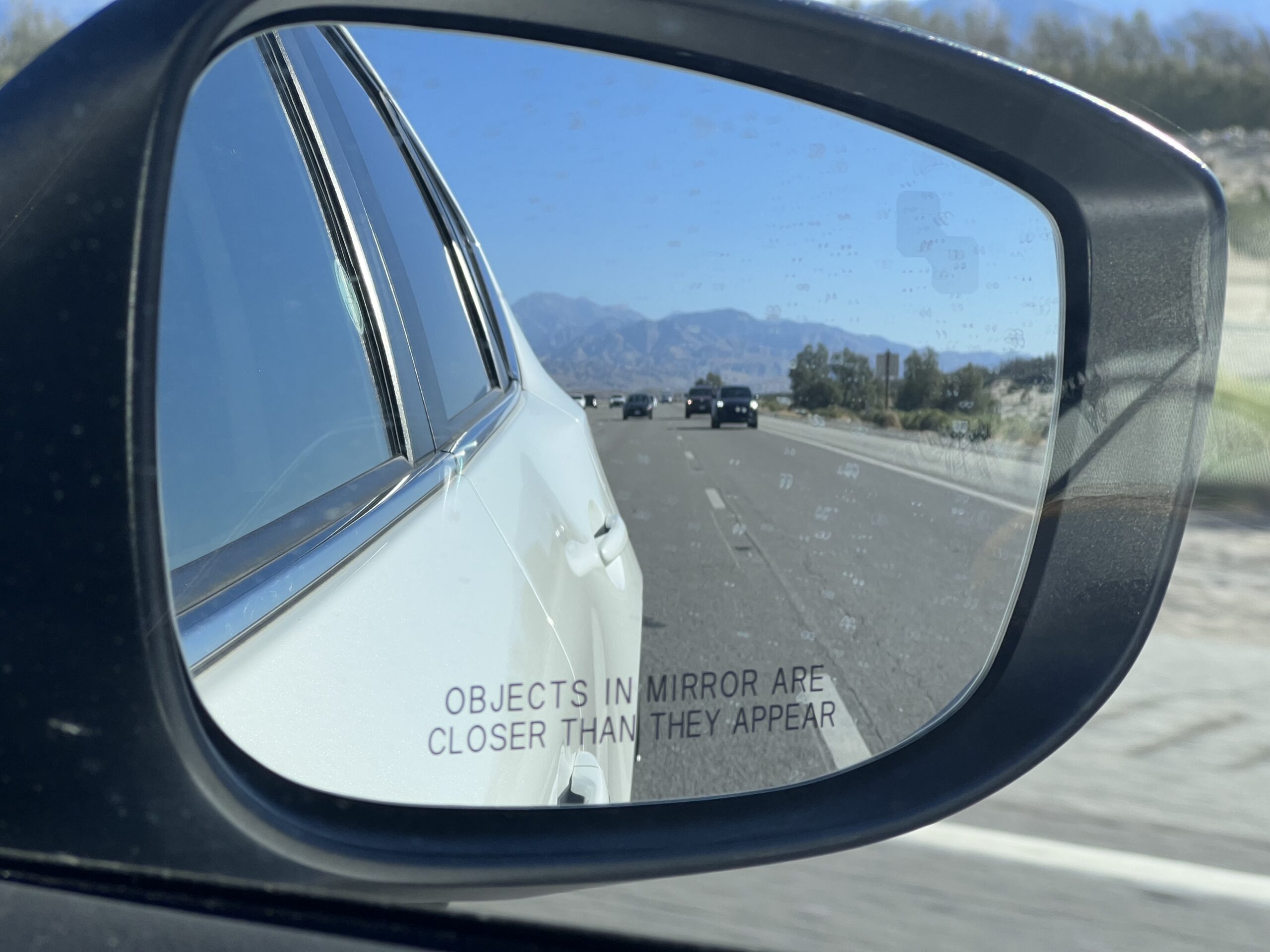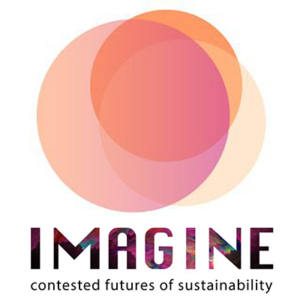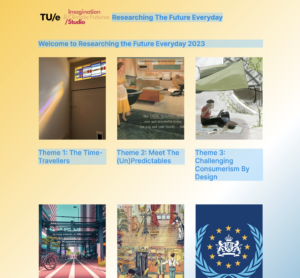
“The climate crisis is a crisis of culture
and thus of imagination”
—Amitav Ghosh
- How do we imagine what a ‘sustainable’ future might entail in everyday life—and where do our ideas come from?
- How does the age of planetary crises affect how we imagine at the level of everyday societal experiences—e.g. eating, travelling, what we wear?
- Can speculative and participatory design methods play multiple roles in imagination infrastructuring?
- by materialising aspects of diverse (and divergent) possible futures in engaging and experiential ways—enabling provocation, confrontation, emotion, and reflection?
- by helping people imagine different futures, beyond dominant imaginaries?
- by materialising aspects of diverse (and divergent) possible futures in engaging and experiential ways—enabling provocation, confrontation, emotion, and reflection?
- How can this approach be valuable as part of the ongoing processes of transition design for (just) transitions?
The IMAGINE project
 IMAGINE: Contested Futures of Sustainability is a 13.7m NOK (€1.37m) research project (2021–24) funded by the Research Council of Norway, led by Consumption Research Norway (SIFO) at Oslo Metropolitan University. Dan Lockton (Imaginaries Lab & Associate Professor of Imagination & Climate Futures at TU Eindhoven) is a co-investigator, working with Femke Coops.
IMAGINE: Contested Futures of Sustainability is a 13.7m NOK (€1.37m) research project (2021–24) funded by the Research Council of Norway, led by Consumption Research Norway (SIFO) at Oslo Metropolitan University. Dan Lockton (Imaginaries Lab & Associate Professor of Imagination & Climate Futures at TU Eindhoven) is a co-investigator, working with Femke Coops.
IMAGINE is an interdisciplinary research project across humanities, social sciences, design, and arts, bringing together researchers from Norway, the Netherlands and the UK. The project aims to address the societal power of cultural imaginaries of sustainability—specifically in relation to imagined futures—via a programme of research including working with design students in Norway and the Netherlands to develop new Master’s courses. Consumption-related practices around eating, dressing, and moving are taken as focal points for exploring these imaginaries.
Background
In an era of climate crisis, our imaginaries of possible futures are crucial. As Ruha Benjamin reminds us, “imagination is the invisible infrastructure” shaping our world. Yet, certain imaginaries—from certain groups of people—dominate popular culture and politics, whether centred on AI-driven techno-utopias, evoking fictional golden ages, or fuelling growing climate anxiety. The notion of an “imaginary crisis” (Geoff Mulgan) suggests that alternative imaginaries remain hidden, or are not even imagined—needing imagination ‘infrastructuring’ (Cassie Robinson) to support their development and emergence. There is a demand for creative methods that support diverse groups to experiment with more radical imaginaries for everyday life in an era of climate change: transitions towards “plural ways of making the world” (Arturo Escobar).
Design has a lot to offer here: design methods can surface imaginaries, enable shared exploration, and inspire creation of more radical, collective ideas; actively co-designing can spark a sense of possibility and shared emotion missing when materiality isn’t there. Design methods can enable prefiguration: experiential futures (Stuart Candy), participatory prototyping and living (parts of) possible futures now, converging prefigurative politics with imagination. While sustainability transitions research engages with foresight methods, it rarely considers imagination infrastructuring, nor imaginaries as something that—socially and culturally—can be actively imagined—materialised, constructed, debated, reconstructed. IMAGINE opens conversations between creative disciplines, futures, and social sciences with a sustainability focus.
Our work at TU Eindhoven and elsewhere
Our work with industrial design students in the Netherlands is at a technical university where largely techno-optimistic imaginaries of futures (whether ‘sustainable’ or not) dominate. Through redesign of the Master’s course Researching the Future Everyday, we aim to explore where these ideas come from (in culture, media, and education), how they are socially performative (Oomen et al, 2021) within design, and how creative projects around treating the ‘future everyday’ as a site of Research through Design enquiry (Kuijer & Robbins, 2022) can challenge, provoke, and build a broader base for imagination and transformative conceptions of sustainability in design. We cover topics such as speculative fiction, hauntology, and ‘lost futures’ and explore how these approaches can be situated in relation to other work on futures and design, including Transition Design (Irwin et al, 2015; Juri et al, 2021; Coops et al, 2024; Lockton & Candy, 2018) and the wider fields of design fiction and speculative design.
More broadly, we aim to examine how this kind of work can support imagination infrastructuring (Robinson, 2022), building on current and previous work from the Imaginaries Lab in research, education, and practice contexts. The Imaginaries Lab’s New Metaphors toolkit has been used by a number of people within what is emerging as the imagination infrastructuring community, including workshops for the UK’s National Lottery Community Fund and Demos Helsinki’s UNTITLED initiative, and a talk for the European Foundation Centre. For the Design Research Society, Dan Lockton and Femke Coops are convening, with other leading transition design researchers, a special track at the DRS 2024 international conference on Designing (for) Transitions and Transformations: Imagination, Climate Futures, and Everyday Lives.
2021–24 TU Eindhoven courses and projects
- DCM170 Researching the Future Everyday (Master’s level)
- DFP003 New Futures – Connectivity in the Home with Energy, Systems and Sound (Bachelor’s & Master’s level)
- DCM100 Constructive Design Research (Master’s level)
Also contributions to courses elsewhere:
- GEO4-2010 Imagining the Future for Transformation (Master’s level), Utrecht University, Urban Futures Studio / Copernicus Institute for Sustainable Development
- MAPD5000 Technology & Design (Master’s Level), Oslo Metropolitan University
Previous courses which relate also to this area:
- 51-471/771 Imaginaries Lab: Research Through Design (Bachelor’s, Master’s, and PhD level), Carnegie Mellon University, focused on Climate Pathways (2019) and Maintenance (2020)
Some relevant publications on imagination and imaginaries, (climate) futures, transitions, and speculative design
- (In preparation for a design journal). Imaginaries and design: futures, presents, and pasts.
- Lockton, D. and Coops, F. (under review). Exploring imaginaries of ‘sustainable’ futures through design education.
- Ovaa, R. and Lockton, D. (forthcoming). Design as a Climate Approach Investigation Tool: Exploring Effects of Collective Governmental Approaches on Climate Change Perspectives. In: Moore, R. (ed.), Climate Change and Mental Health Equity, Springer.
- Speed, S., Light, A., Siodmok, A., Teasley, S., Vaughan, L., Gray, C., Forlano, L., Lindström, K., Lockton, D. (forthcoming). Mapping Constellations for Regenerative Design. DRS 2024: Design Research Society International Conference, Boston
- Coops, F., Lockton, D., Gaziulusoy, İ., Tonkinwise, C., Boehnert, J., Ortega Pallanez, M., Nilstad Pettersen, I., Culén, A.L., Juri, S. (forthcoming). Designing for Transitions and Transformations: Resistance, Recovery, Reflection, and Reimagination. DRS 2024: Design Research Society International Conference, Boston
- Coops, F., van der Veen, R., van der Horst, S., Bogner, K., Lockton, D. (2023). Designing Spaces for Letting Go in Sustainability Transitions. RSD12: Relating Systems Thinking and Design Symposium, Amsterdam
- Laschke, M., Bucher, A., Coulton, P., Hassenzahl, M., Kuijer, L., Lallemand, C., Lockton, D., Ludden, G., Deterding, S. (2023). Moral Agents for Sustainable Transitions: Ethics, Politics, Design. CHI Conference on Human Factors in Computing Systems (CHI EA ’23). Association for Computing Machinery, New York, NY, USA, Article 359, 1–6. https://doi.org/10.1145/3544549.3573814
- Welch, D., Heidenstrøm, N., Lockton. D. (2022). Towards a conceptual framework for contested imaginaries of sustainability. Anticipation 22: 4th international conference on anticipation, Arizona.
- Light, A., Gray, C.M., Lindström, K., Forlano, L., Lockton, D., Speed, C. (2022). Designing Transformative Futures. DRS 2022: Design Research Society International Conference, Bilbao
- Lockton, D. (2022). Exploring Bateson’s Syllogism in Grass in Systemic Design. RSD11: Relating Systems Thinking and Design Symposium, Brighton.
- Lockton, D., Forlano, L., Fass, J., Brawley, L. (2020). Thinking with Things: Landscapes, Connections and Performances as Modes of Building Shared Understanding. IEEE Computer Graphics and Applications, 40(6), 38–50, https://doi.org/10.1109/MCG.2020.3027591
- Lockton, D., Chou, M., Krishnaprasad, A., Dixit, D., La Vattiata, S., Shon, J., Geiger, M., Zea-Wolfson, T. (2019). Metaphors and imaginaries in design research for change. DR4C: Design Research for Change Symposium, Design Museum, London
- Lockton, D. and Candy, S. (2019). A Vocabulary for Visions in Designing for Transitions. Cuadernos del Centro de Estudios en Diseño y Comunicación. 73, 27–49. https://doi.org/10.18682/cdc.vi73.1036
- Lockton, D., Singh, D., Sabnis, S., Chou, M., Foley, S., Pantoja., A. (2019). New Metaphors: A Workshop Method for Generating Ideas and Reframing Problems in Design and Beyond. In Proceedings of the 2019 Conference on Creativity and Cognition (C&C ’19). Association for Computing Machinery, New York, NY, USA, 319–332. https://doi.org/10.1145/3325480.3326570
- Lockton, D., and Ranner, V. (2017). Plans and speculated actions: Design, behaviour and complexity in sustainable futures. In: Chapman, J. (ed.), The Routledge Handbook of Sustainable Product Design. Routledge.
Keep up to date with IMAGINE on Oslo Met’s project blog.

